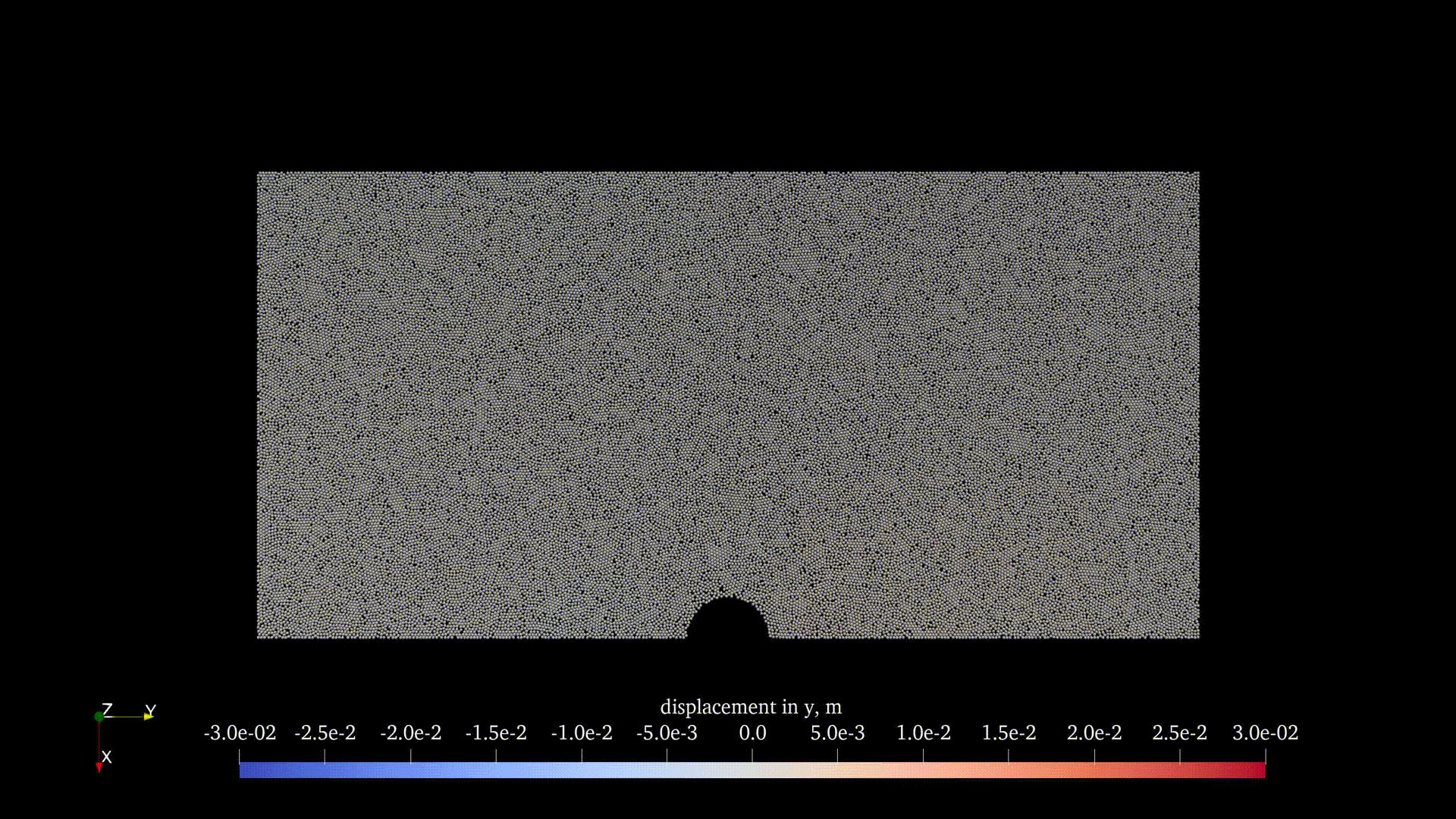CFD-DEM modeling of fracture initiation with polymer injection in granular media
Published in Preprint, 2024
Recommended citation: Kazidenov, D., & Amanbek, Y. (2024). CFD-DEM modeling of fracture initiation with polymer injection in granular media. arXiv preprint arXiv:2402.02106. https://doi.org/10.48550/arXiv.2402.02106
“We numerically study mechanisms and conditions of fracture initiation in weakly cohesive granular media induced by non-Newtonian polymer solutions. A coupling approach of computational fluid dynamics and discrete element method is utilized to model the fluid flow in a porous medium. The flow behavior of polymer solutions and drag force acting on particles are calculated based on a power-law model. The adequacy of the numerical model is confirmed by comparing the results with a laboratory experiment. The numerical results are consistent with the experimental data presenting similar tendencies in dimensionless parameters that incorporate fluid flow rate, rheology, peak pressure, and confining stress. Results show that fluid flow rate, rheology, and solid material characteristics strongly influence fracture initiation behavior. Injecting a more viscous guar-based solution results in wider fractures induced by grain displacement. A less viscous XG-based solution creates more linear fractures dominated by infiltration. The peak pressure ratio between two fluids is higher in rigid material compared to softer material. Finally, the dimensionless parameters $1/\Pi_1$ and $\tau_2$, which consider fluid and solid material properties accordingly, are good indicators in determining fracture initiation induced by shear-thinning fluids. Our numerical results show that fracture initiation occurs above $1/\Pi_1 = 0.06$ and $\tau_2 = 2\cdot 10^{-7}$. “

